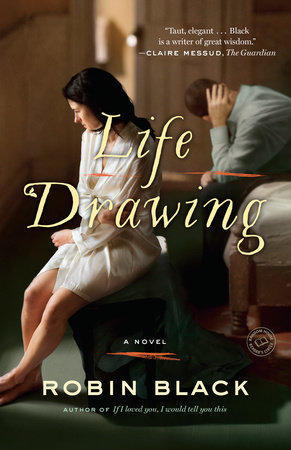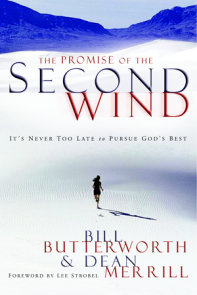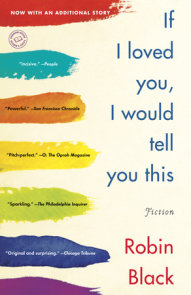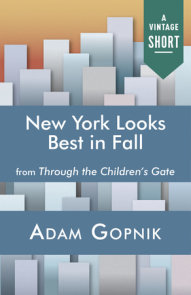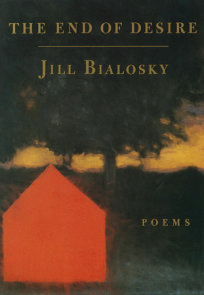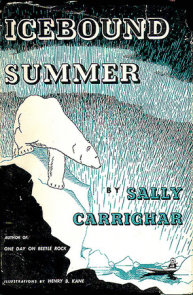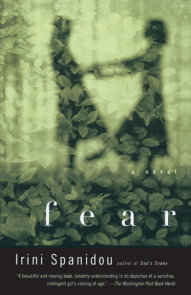READERS GUIDE
Writing is an odd profession. I sometimes startle when I realize how much of my time I spend fretting about people who don’t actually exist. Am I truly an adult woman playing for hours each day with imaginary friends?
It turns out that I am.
For me, it has been important to try and understand what drives a seemingly sane, even sensible, down-to-earth person to dwell in her own imagination so much of the time. What are the moments that have shaped this need in me? How does my fiction relate to my life, to the whole experience of living a life, as I understand it? How can my thoughts about my “real life” endow my written work with a life of its own?
Of course, I’m not the only person who wonders about these things. At events, in interviews, I am often asked, as I believe all writers are, about the creative process, about the interaction between daily life and that other world, the one that finds its way from an author’s imagination, onto the page; and then off the page again, as the reader’s imagination is engaged.
“Why do you write?” The truth is that I don’t have an answer—yet. But I have a seemingly insatiable curiosity, myself.
So I have kept notes of a kind, written essays on the subject, trying both to understand for myself and to convey to others how this whole strange business works—for me, anyway. How I think about myself as a writer, how those imaginary friends of mine and I interact.
I very much hope you enjoy the three pieces that are included here. They are glimpses at my process, at what lies behind Life Drawing, and at why it is the book it is, the one you are holding in your hand.
Finally, I share these essays with much gratitude to you, all readers, because without you every writer’s imagination, including mine, would remain forever trapped on the page.
Robin Black
November 2014
Origins
When I was ten years old, my maternal grandmother moved into our home.
Grandma was a tough cookie. Stetl born, Lower East Side raised, the second oldest of eight children, she had a reputation as something of a drill sergeant. “There’s a right way and wrong way to do everything,” she would say, and it was clear into which category her way invariably fell. But she was also a woman of contradictions, unexpectedly tenderhearted and always likely to side with the underdog, yet someone who hadn’t hesitated to smack around her own sons when she thought they’d stepped out of line. A good woman? A bad woman? A complicated woman. And, by the time she moved in with us, a seventy-two-year-old woman paralyzed from the waist down from spinal tumors for more than ten years, widowed for most of that time.
As a writer, it’s inevitable that you will wonder sometimes what made you the sort of writer you are: what periods of your life, what particular events, what people. And of course there is no one answer, but there are occasional little glimmers you can find, moments and exchanges that seem to explain something, if not everything.
Grandma’s move into our home offers such a glimmer for me.
During the initial years of Grandma’s paralysis, including after her widowhood, she lived alone, a couple of hours away from us. Her six sisters did her shopping, provided her with constant company, playing crucial roles in helping her maintain her independence. One of my earliest memories is of watching her wash the dishes, the gravity of her weight against the sink keeping her upright. She wasn’t exactly mobile, but she wasn’t exactly immobile either until something shifted the wrong way in her spine, robbing her of the ability to live alone. When she moved in with us she became entirely bedridden—as she would remain until her death at nearly eighty-three.
I was ten years old that first day, November 1972, and I wasn’t exactly a happy child. My father, alcoholic and depressive, had been institutionalized for several months in ’71, an experience preceded and followed by disorienting chaos in our home. I wasn’t carefree or untouched by sorrow, but I remember being giddy around my grandmother’s move into our home. It seemed like such fun, so cool to have her there. I wrote poems to commemorate the event and I raced my brothers in her two wheelchairs, and I made a lot of what I thought were very funny jokes about—of all things—an imaginary suitor for her.
Mercifully, I don’t remember the specifics of this long-running joke of mine. He had a name, I know. He had a spiel. All of it now gone from my mind. But what I do remember, very clearly, is the evening when my mother took me into the hallway and suggested that I stop. “You know,” she said, as gently as was possible, “if Grandma hadn’t been in a wheelchair, stuck in her apartment, she might have had a real suitor. She might have remarried after my father died. It may be a joke that makes her sad.”
My memories of that moment are painful still. What shame I felt, even horror, at my mother’s words. I had thought I was being funny, cheering everybody up, when in fact I had been causing pain. I sense even now the reverberations of a shattering at my foundation, a change at a molecular level of who I understood myself to be. No longer a child who could look at another person without wondering what their life was like, but someone with a need to know what other people’s stories might actually be. Really. What is truly happening. Below the surface. Not because I suddenly became a better person, but because I was terrified of again inadvertently being cruel.
And the impact goes beyond having had an empathic imagination shocked into me that night. When my story collection If I loved you, I would tell you this came out, I was asked repeatedly why I wrote so often about older women, women in their seventies and beyond. “I feel a commitment to reminding people that older women are still complex human beings,” I would say. A worthy goal? Of course. A lifelong creative penance for having been a little girl who hurt someone by forgetting that fact? Perhaps.
What does it take to write fiction? What determines our obsessions? What guides us toward the places and people by which our imaginations are sparked?
These questions are both unavoidable and unanswerable. But I know that all our lives are scattered with just such glimmers as the one I have described, shimmering shards of ourselves that can provide a glimpse of how we became who we are—and that may always remain sharp enough to cut.
Lessons
For a long time now, I have suspected that there is a connection between regret and fiction writing—beyond the obvious possibility that one might regret having started to write fiction.
Regret is among a very few emotions that cannot exist without an accompanying narrative. I wish I had gone on that trip because . . . I would have met the love of my life; I wouldn’t have set the house on fire; I would have seen Paris before I died, and been less sad at the prospect of mortality. All regret carries within it a particular kind of fiction, one in which the rules of causality and chance are suspended—in favor of the certainty of a happy end. We, who should know better, convince ourselves that we can know what would have happened in the past . . . if only. Regret makes confident storytellers of us all.
It also makes us fans of bold action, retrospectively, anyway. Social scientists and psychologists concur that people are more likely to regret what they have not done than what they have done. It’s the missed opportunity that feels poignant. The road not taken. The challenge to which we did not rise. The one who got away.
And what does this have to do with writing fiction? Rather a lot, I think.
Often, with a project, I reach a point at which the whole structure suddenly takes on a moribund, fruitless quality. The narrative, once brimming with life and promise, has died. It’s a terrifying moment. I feel immediately despondent and also strangely trapped by the story itself, as I have written it. As soon as words are put on paper, they can take on an unhelpfully inevitable quality, cornering us: Here is what’s happened so far. Now what can you do to fix it?
But, as regret narratives demonstrate, what didn’t happen in a story may actually be a far greater resource for imaginative thinking than what did. These days, when I hit that frightening place, I go back to the pages, looking for an unexplored moment brimming with a character’s might have beens.
I look for lines like: I thought of telling him what had happened the night before, but decided against it. Or, I could have run after her and pleaded my case, but instead, went back inside. Or, She stared at the phone for a very long while, but never picked it up. In other words, I look for the points of inaction that my characters might themselves later regret.
This happened to me with Life Drawing. Early in the novel Gus visits Alison after Alison’s former husband has made a horrible scene in the driveway; but in the earliest drafts of the book, I had Gus only consider visiting Alison, then decide against going. When I reread those drafts, though, it felt like an exchange between the two women was missing. A scene in which Alison might show some genuine vulnerability, in which Gus might be the one offering support—or failing to, due to her own limitations. And so I went back into the book, searching for a moment at which someone had shied away from taking action; and sure enough! I found Gus staring at Alison’s home, thinking she ought to go check on her neighbor, and then turning away. So of course I remedied that, pushing her through Alison’s door.
I write about it now as if Gus were the one making decisions, but who was engaging in the avoidance, really? Gus? Or her creator? What if the scene turned out to be too complex to write? What if I lacked the finesse to make it both powerful and subtle, as it needed to be?
For an author, it’s tempting to keep things simple, to write the easiest path. When a piece is fresh I have something like a heat sensor that detects possible complications, the difficult exchanges, the entanglements that might arise; and my first instinct is to avoid such sparks and fires—until one day I sit down at the computer to find a narrative that has taken on that deathly, immobile quality.
In real life, we don’t get to return to our twenties and step onto the airplane we were afraid to fly; or audition for the play that excited and scared us; or ask the beauty to dinner; or take the job in Boston. In real life, the past has passed and all we can do is tell ourselves poignant, intuitively well-crafted stories of what might have been. If only . . .
But in fiction, what is done can be undone and what hasn’t been done can still be done. And maybe this is some of the joy of being an author, this magical ability to reach back in time and replace a poorly placed no with a well-placed yes. And see what happens. See that something happens.
And, whatever happens, no regrets.
Intuitions
My tale begins with an abandonment. Mid 2009. A twice-drafted novel, already sold while in progress as part of a two-book deal. My dawning realization that it wasn’t very good, that it would never be very good, that it was, in fact, that banal yet terrifying thing I swore I would never create: the desk drawer novel. The starter novel. The learner’s novel.
I got going too late at this writing game to waste years on a practice book, I told myself. And the Heavens laughed.
I found myself still under contract with the directive to write a different novel, one I had yet to begin. In many ways, this was an enviable place to be, I know. But also not. Because it turns out that if you spent your forties writing short stories mostly under the assumption that no one terribly far outside your own circle of family and friends will ever read them, it’s not then so easy to write anything, much less a form at which you’ve already failed, certain that there are editors looking at their watches, marking days off on their calendars, peering over your shoulder, wondering what the hell you’re doing with your time.
It was an awful couple of years. The unfulfilled contract made me miserable. I woke up morning after morning physically ill with anxiety. In dark hours, I told my husband that I’d already said what I had to say in my eleven stories, that I was finished writing fiction. The well was dry. The need to communicate, sated. And that the novel was a dumb form anyway. This last bit mumbled while pouting and kicking at the couch. Stupid novels.
By January 2012, when I arrived at an annual retreat I shared with writer friends, I was a wreck. It had been nearly three years since I’d withdrawn my mediocre novel, and in that time, I had started and stopped at least four new projects. I hated them. They hated me. I hated myself. Oh, and did I mention, I had officially given up? Well, not officially. I hadn’t yet informed my agent or my editors, but deep in my heart I just knew. . . .
On the first night of that retreat, I told my friends that the whole project was doomed. Rather than write, I would use the week to goof off, reading and composing whatever—prose poems, limericks, ad copy—rather than keep trying to make a book appear from thin, unimaginably thin and ungenerous, air.
I spent the first five days of that retreat reading Ovid—with no idea what led me there. I read about Medusa, and I read about Pygmalion and Galatea. I read about the woman who could turn people into stone and the woman who had once been stone herself. I imagined Medusa seeking out Galatea so she could ask for a report on what it was like to be a statue—Galatea being the only person who could inform her about that state. So, about these people I keep petrifying, what are they actually going through? I felt sorry for Medusa, for her hideous visage, for her shitty future, for how everyone hated her. And I felt sorry for Galatea, too, awakening from eternity to find herself being fondled by some man whose appreciation of her perfection left no room for her choice, for her desires.
And then on day six of the retreat I put Ovid to the side and wrote the first five thousand words of Life Drawing—five thousand words that have remained essentially the same through every revision. The next day, I wrote the next four thousand words.
I tell the story that way, with no real lead up to that happy turn, because that is what it felt like at the time. One day I couldn’t write a novel; and the next day I could write a novel—a novel that over the following year poured out of me in a way no story ever had, as though all I’d had to do was remove the lid and tip the container just a bit.
But what had actually happened?
It is, of course, impossible to know. Creativity cannot be understood. It can be analyzed and maybe even quantified in some ways, but never understood. There were elements to which I can point as having likely helped. Wise comments from the women there with me, and also from other friends who were not. A sudden realization that having cut my teeth writing about families, I was tired of writing about families. But among those elements and more, it is the five days of reading Ovid to which I now return. Because in those ancient stories, my own obsessions were lurking, outside my anxieties about productivity, directing me back toward why I write.
The connection between Life Drawing and my reading then is clear to me now. Life Drawing is a novel about many things, but at its core lie questions involving the relationships between art and mortality, art and grief, art and redemption. What does it mean, as an artist, to give life to human figures? What does it mean when an artist cannot give life? And how does all of that relate to the human capacity, again and again, to renew our faith in others, in ourselves? As with the Ovid I read, these are the strands that are braided at my novel’s heart: mortality, forgiveness, and art.
So, when did I figure out that my reading about stone figures, mortal petrification, statues coming to life, and irreversible punishment, had any bearing on my book? Only today. The day on which the manuscript has been taken from my hands and sent off to the copyediting department for polishing.
And that is how novels are made.
Except it is not.
The next novelist to tell you the conception story of her book is unlikely to recount immersing herself in Ovid’s Metamorphoses for five days. She may talk about the bad marriage she needed to leave. Or writing longhand. Or traveling for research. Or doing yoga. Because none of our stories are the same. Some authors are great planners and plotters. Some know what they will write long before they ever begin, while I am a stumbler and a wanderer, often blind to my own motivations, ignorant about what pulls me along, clueless about what lights me up. I am a writer whose strength is not foresight, but intuition, a quality that this time—thankfully, unexpectedly—guided me just where I needed to go.
Questions and Topics for Discussion
1. Gus is the voice that guides you through Life Drawing. She’s in charge of how this story is told, including how you hear about her own missteps and failings. How do you think she feels about having had an extramarital affair? She obviously regrets hurting Owen, but does she seem to regret what she did, or just that she told him? Does her attitude toward that change over the course of the book?
2. Alison seems to hold an almost mystical power over Gus from the moment of her arrival. What are some of the things that make Gus so susceptible to the lure of a new friend—and not just a friend, but someone to whom she tells her most intimate secrets? Gus has a history of disloyalty. Is it fair to say that she’s being disloyal to Owen again by telling Alison so much, or is it understandable that Gus would need a confidante?
3. How would you describe the condition of Owen and Gus’s marriage at the point of Alison’s arrival? What do you think would have happened to them if they’d just gone on living in solitude? Were the resentments bound to bubble up without a third person involved, or did they seem settled into a good life? If there were problems that were bound to come up, what were some warning signs?
4. Why do you think the “boys in the walls” ignite Gus’s creativity? Why does discovering the accounts of their fates and the photographs she finds feel so instantly meaningful to her?
5. Because Gus has neither a mother nor a child, everything about motherhood is filtered through her guesses at what it might be like—from both sides. How does this lack of personal experience play out in the story? How does it affect her feelings toward Alison? Nora? Laine?
6. As Gus’s father, Sam, loses his memory, Gus seems to feel torn about the loss. There are clearly upsetting aspects, but she also describes the two of them as growing closer. Why do you think this is?
7. How do you feel about Nora? Is she scheming and selfish, or just very young; or maybe a combination of all? Gus herself describes two possibilities: forgiving her for being naïve and just one part of a complex tragedy, and blaming her for everything coming apart. Where do you think she falls on the line between the two?
8. How do Gus’s feelings about Laine change in the course of Laine’s visit and her critique of Gus’s work, and also afterward? What does that visit give Gus beyond a new view of her paintings? And do you think Owen’s reaction is fair, or is it time for him to let up a little bit?
9. Gus is surprised by the lengths to which Alison goes because she’s worried about Nora, and also by how much Alison has confided in her daughter. As Gus becomes furious over these things, what else may be fueling her anger besides the immediate impact? She seems so often to be jealous of that mother-daughter bond. Is that jealousy present all the way through the story, or do other angers replace it entirely?
10. What do you think Ida’s role is in the story? Why was Gus so afraid of her judgment back when she was painting the shop? What or whom does Ida represent to her?
11. Do you believe Owen in his account of what has gone on between him and Nora? Gus only has his word that there was no sexual relationship, so that’s all the reader has too. Would he have told her if there were? Do you believe that she really helped him write? Could he have said that as payback to Gus, or does that seem out of character for him?
12. Toward the end, Owen describes their marriage as a “universe.” What do you think that means? Does that seem like a good way to describe marriages in general, or is it something more specific about the two of them?
13. Why do you think Gus has so much difficulty painting human beings? Are there any explanations to why she lacks “the life drawing gene” as she calls it? Do you think she has any theories about why that may be?
14. What do you suppose happens in Gus’s life a year after the end of this book? Two years? Can you imagine her staying out in the country? Moving back into the city? Falling in love? So much in Life Drawing is about the past. What do you suppose the future holds?









